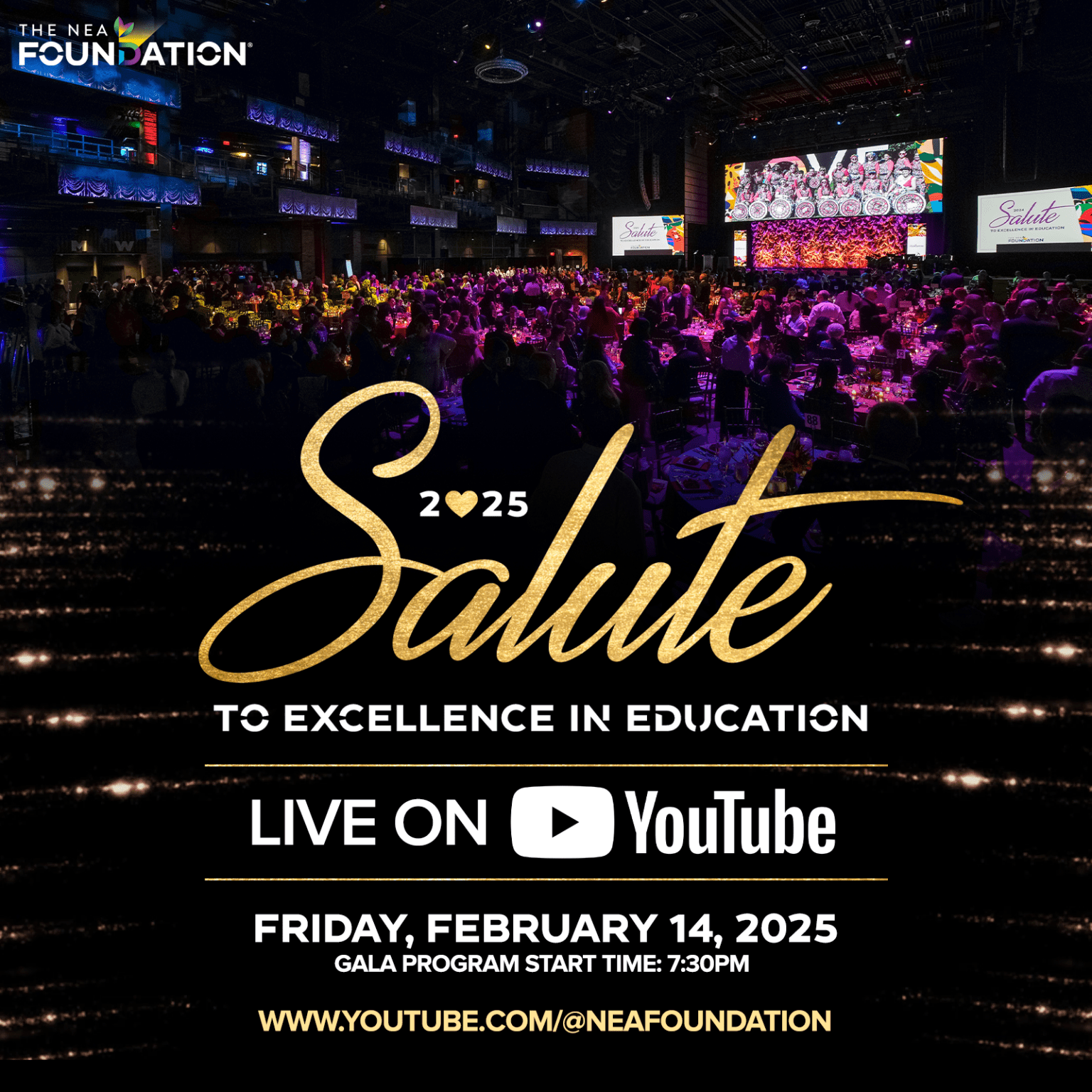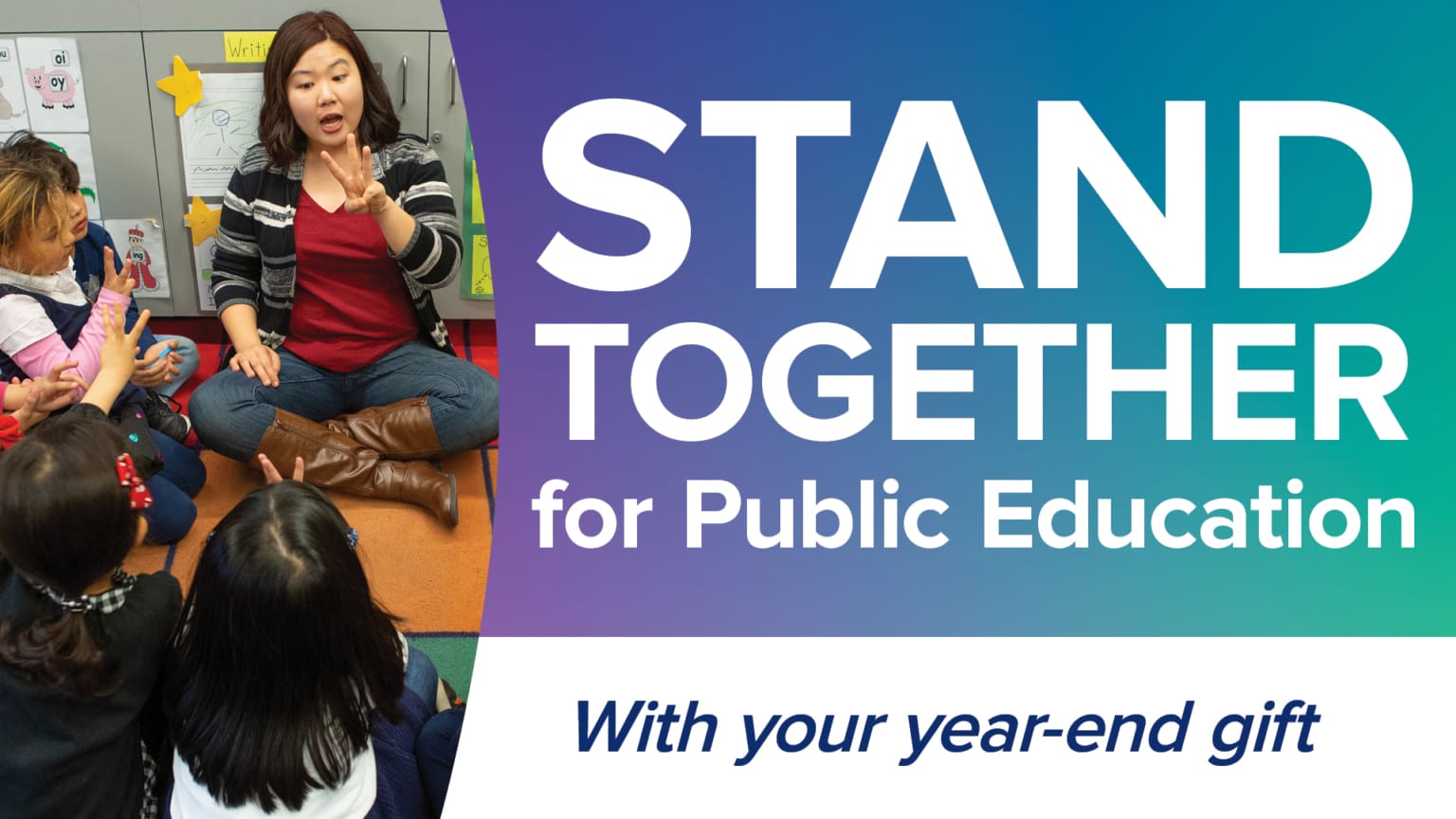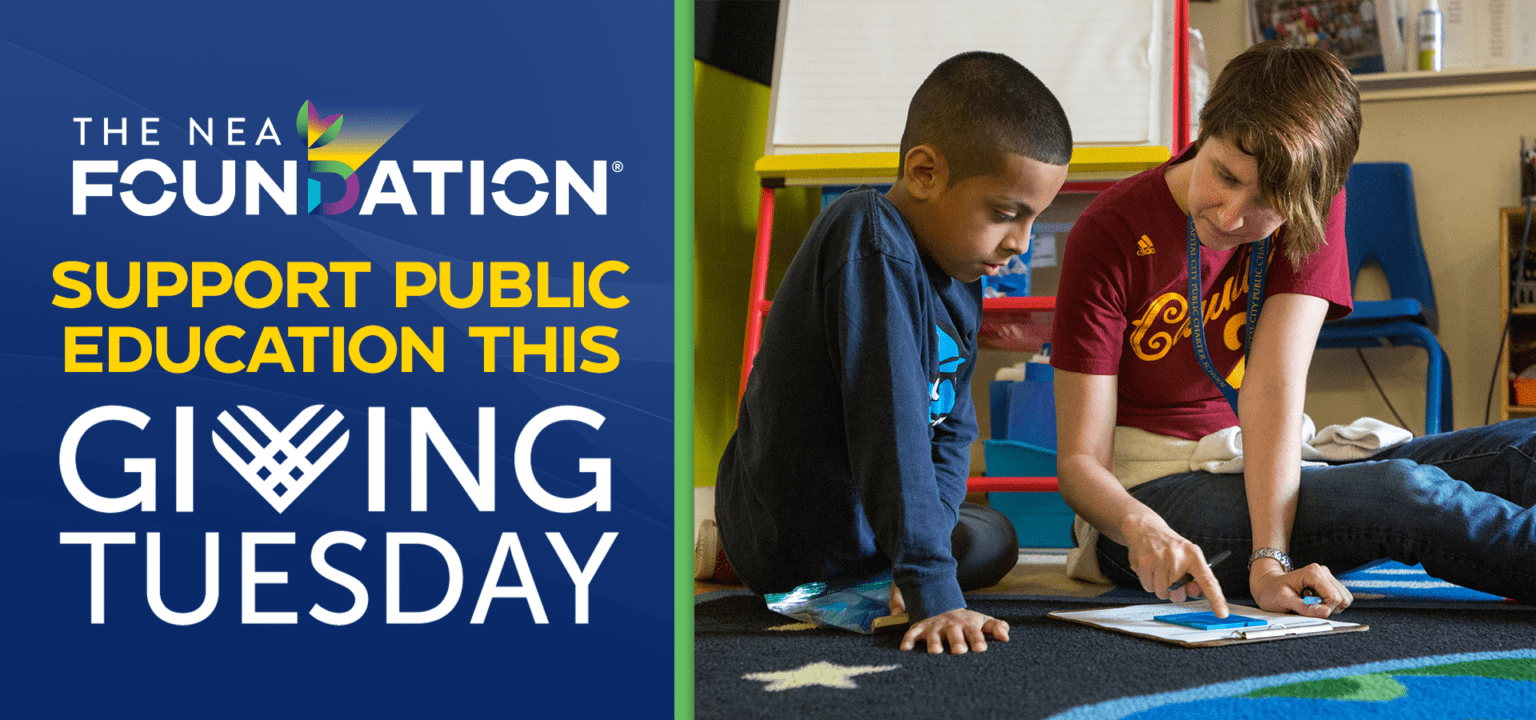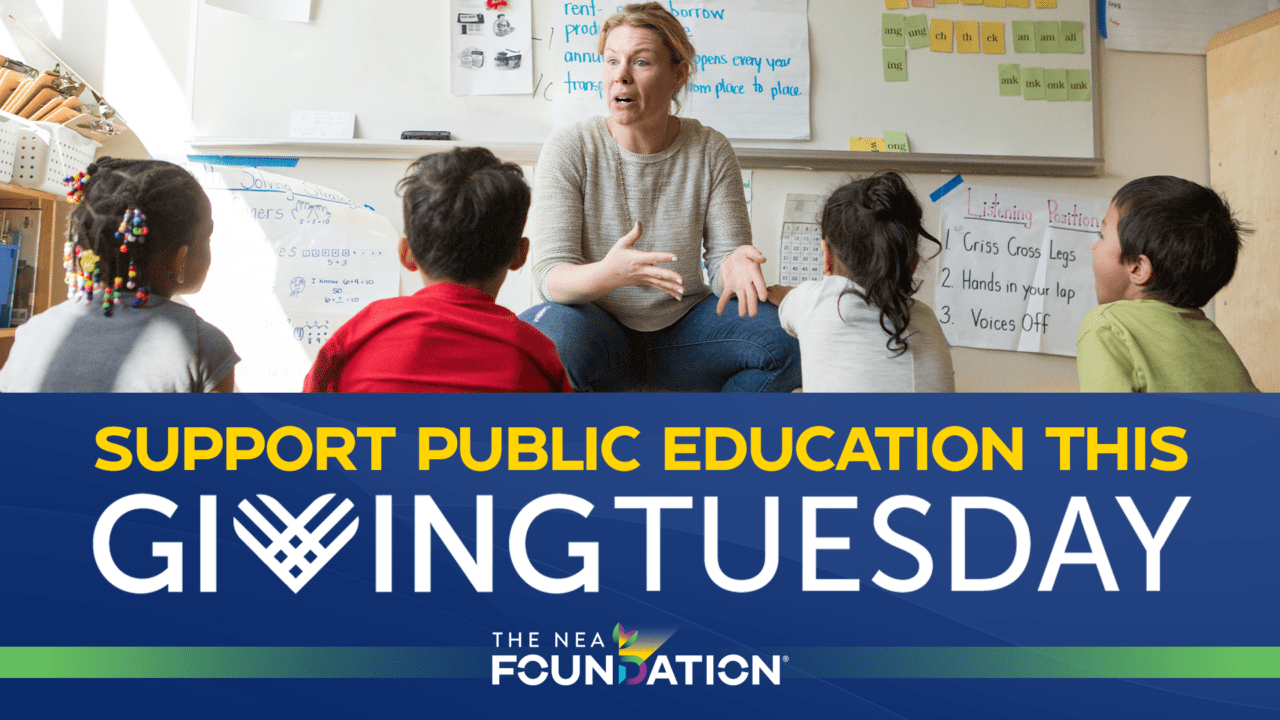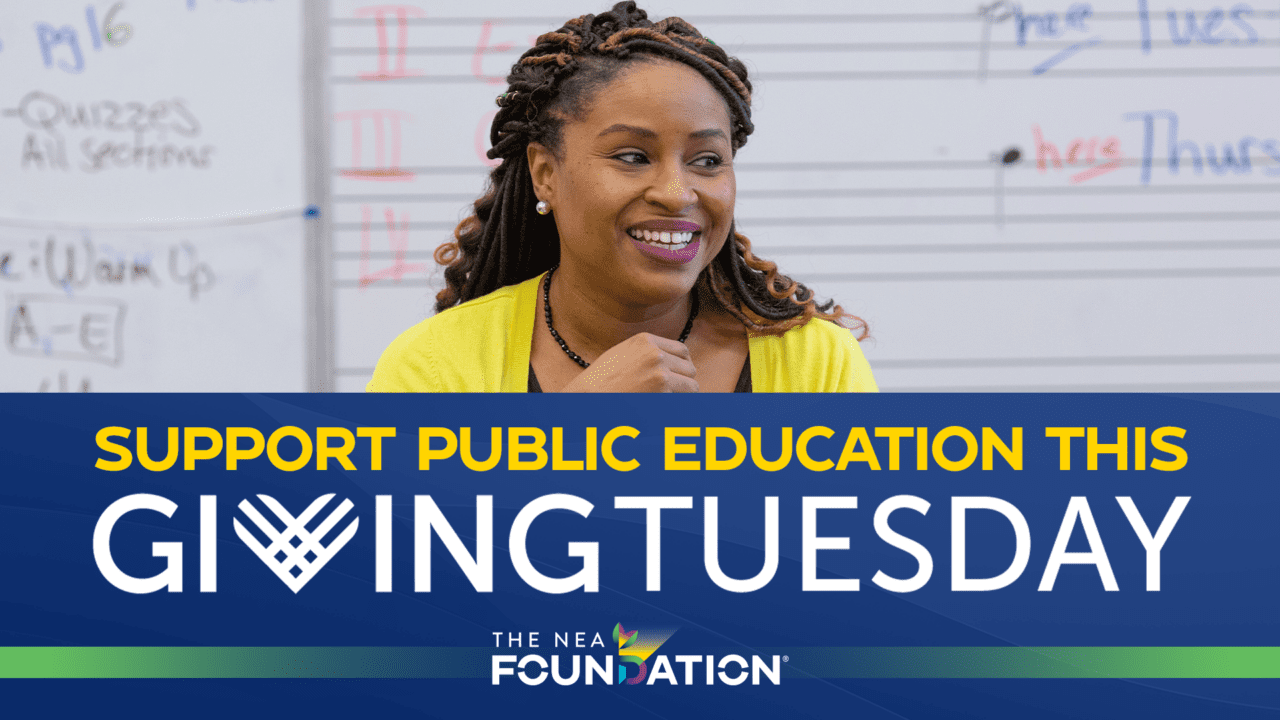Last month, 185 educators and other participants from 30 countries gathered virtually to connect with and learn from global learning experts and each other. The second annual NEA Foundation Global Learning EdCamp, hosted by the Foundation and organized by its Global Learning Fellowship program staff and Advisory Council, offered a unique opportunity for educators to lead and shape their own learning experiences, focusing on the transformative power of global learning.
The event kicked off with opening remarks from Sara A. Sneed, president and CEO of The NEA Foundation, who underscored the importance of global perspectives in education. “In our increasingly connected world, we are not just local citizens, but part of a global community,” said Sneed. “This conference is about our shared appreciation for the diversity of perspectives, traditions, and ways of life, and how it helps us develop empathy and understanding.”
One Educator’s Account of Global Perspectives in the Classroom
A highlight of the EdCamp was the keynote address delivered by Chris Dier, a 2023 Global Learning Fellow and high school social studies teacher based in New Orleans. Drawing from his experiences in the Global Learning Fellowship, particularly the field study in South Africa, Dier shared firsthand insights into the transformative power of embracing global thinking and bringing it back into the classroom.
“My experiences in South Africa have fundamentally changed how I approach teaching,” Dier said. “By connecting issues in South Africa to those in the United States, my lessons have become more tangible and meaningful to both me and my students. We are better able to make real-time global connections and emphasize our shared humanity.”
Dier challenged participants to expand diverse perspectives in their classrooms, advocate for truth, and build bridges through authentic history. He also highlighted the urgent need for authentic history and diverse perspectives in light of recent U.S. policies restricting certain subjects in education.
“In the U.S., over 600 policies have been attempted in the last three years to hinder the teaching of honest history or stifle conversations about race and gender,” Dier said. “At least 18 states have passed measures to censure discussions about race in schools, raising serious concerns about freedom of information and the preservation of historical truth.”
Dier emphasized the importance of confronting historical injustices and their legacies to build a society that values the inherent dignity and worth of every student.

Street art in South Africa; photo courtesy of Chris Dier
“Unconference” Style: By Educators, For Educators
Following the keynote, participants attended sessions on topics proposed and driven by the attendees themselves, following the format of an “unconference.”
One session focused on opportunities for intercultural virtual exchanges in primary and secondary settings, exploring innovative ways to connect students across the globe. One attendee emphasized how classroom-to-classroom partnerships between U.S. students and students of other countries can make for all-around better student experiences as students learn more about the world and each other. Other attendees shared how students can participate in pen pal exchanges to share art and practice authentic storytelling.
Another session delved into using AI to enhance global competence and intercultural understanding, showcasing the potential of technology in expanding students’ horizons. One educator shared how they use a Facebook group called ChatGPT for Teachers to participate in conversations with educators from all over the world about the challenges and unique opportunities presented by AI. Another educator shared how AI can help with globally-minded lesson planning. Others discussed the potential of using chat bots to practice foreign language learning.
Other topics included infusing global learning into the arts, entrepreneurship around the world, and integrating the United Nation’s Sustainable Development Goals into STEAM curricula.
Kathy Bosiak, a high school science educator in North Carolina, described the experience as fundamentally different from other global learning conferences she had attended.
“I have been a part of numerous ‘global conferences’ that were not global at all—the GLF EdCamp was definitely not one of those!” Bosiak said. “I absolutely loved that we were sharing experiences and tips with each other rather than just being online and listening to one individual talk. I was able to connect with like-minded educators, each of us bringing something different, but similar to the table.”
Educators also discussed the need for administrators and districts to prioritize global learning, and how students in underserved communities had limited access to technical devices that allowed students in other communities to access rich virtual experiences.
Isabelle Cooksey, program officer for the Global Learning Fellowship and creator of the Global Learning EdCamp, expressed her hope for the event’s impact in growing the global learning network and fostering lasting connections among educators.
“I hope there were new and lasting connections made,” Cooksey said. “Events like this can be hard to find, but they’re essential for support and collaboration in global education.”
Follow The NEA Foundation on social media for updates on the 2025 Global Learning EdCamp, and in the meantime, explore our Global Learning Resource Library for free resources for educators.


